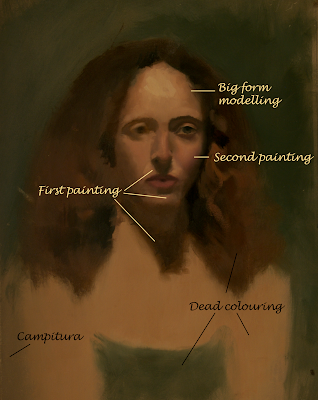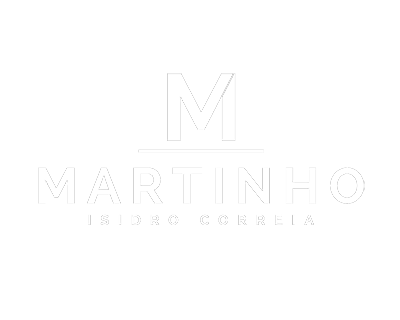
The terminology I use in describing the painting stages comes from Thomas Bardwell’s 1756 book “Anecdote of Painters”. This is the first book published in Britain giving a detailed and comprehensive set of instructions for a method of oil painting. Bardwell stated that he discovered his method by studying the art of the past.
Bardwell’s “perfect painting method” involves the following stages:
Dead Colouring
– a flat colouring applied over a preparatory drawing.
– a broad and simple manner using large brushes.
– omit details and blur edges.
– thick in lights and thin in darks.
– aim for the general effect of colour and chiaroscuro.
First Painting
– the first step is the creation of the illusion of form called “big form modeling”.
– next begin the description of the planes and details upon them.
– attention is paid to refining shapes, shades and variety of tints.
– paint is laid on without blending so the final affect is like a mosaic.
– “fat over lean” – this layer contains more oil in the medium than previous.
– lights thick, shadows thin.
Second Painting
– the finishing stage, again fat over lean.
– a thin couch of paint is used to cover the thicker first painting and each area is repainted with an attention to subtle blending
and modeling.
Glazing and Toning
– In this final stage very light layers of transparent or semi – transparent paint are applied over an area which needs to
adjusted, either darked or softened slightly.
– Titian, when asked how he completed his paintings, replied “Velatura, trenta o quaranta” (Glazes, thirty or forty).
Click twice on the painting of Simona above for a close up look at all the stages. Her left cheek is the only part second painted. The right eye is still in the drawing stage while the right check is described simply with front and side planes. The rest of the head is first painted. The campitura is the coloured ground that I started upon. Here it was Old Holland burnt umber and lead white.



This is pretty much the description of the main painting method at Angel Academy, right?
Very interesting
Did you think Bouguereau painted the first past as opaque flat planes, or more something line an ebauche?
I believe that Bougureau painted an ebouche. And yes, this is the method taught at Angel Academy.